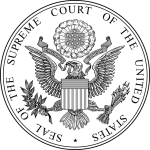Chatbots’ ease of use and ability to rapidly create human-like text, including everything from reports, essays, and recipes to computer code, ensure that the AI revolution will be a powerful tool for students at every level to improve their capabilities and expertise. The list of apps and services is growing longer every day. But, like most powerful technologies, the use of chatbots offers challenges as well as opportunities. We need strategies to minimize the former and accentuate the latter.
Policy & Ethics
“It never made sense for the DEA to list marijuana as a Schedule I drug. Making it a Schedule III controlled substance will make researching the drug’s medicinal uses easier. But it still makes federal criminals of the millions of adults who have been using marijuana recreationally for millennia and makes as much sense as it does to require people to get a prescription to ingest beer, wine, or whiskey.”
Whether it's better in the mind’s eye to know one’s biological origins (if born of a donated sperm or egg) – or not – is the subject of much debate. The answer depends on where you were born.
The courts have found that FDA's tobacco policies are arbitrary and capricious. The medical community calls them unscientific and harmful.
Reporters like to portray themselves as truth tellers who hold the powerful accountable. In reality, many of them are hired guns who publish propaganda under the guise of doing journalism. The good news is that a growing number of Americans are abandoning the legacy media for better sources of information.
The Guardian's August 17 headline, “Drinking Water of Millions of Americans Contaminated with Forever Chemicals”, was based on newly released data from EPA’s Fifth Unregulated Contaminant Monitoring Rule. Contrary to the headlines blasted in the media, the actual data from this rule shows that Americans have nothing to fear from these chemicals.
Politicians need to seem to be doing SOMETHING, even if it is ill-advised, profligate, and futile, endangers Americans' standard of living and the nation's security. It applies to much of today's policymaking, from mitigation of climate change to the regulation of chemicals and genetic engineering.
There’s something about autism that invites scapegoating. The latest attack was on makers of Lexapro, the anti-depressant medication, when used during pregnancy. Six plaintiffs recruited three experts to testify to a supposed causal connection between the drug and their children’s affliction. The court rejected the expert testimony outright and dismissed the case. Three weeks ago, the Second Circuit affirmed. The decisions, while applaudable, are problematic.
The U.S. Supreme Court recently ruled that Affirmative Action in university admissions is discriminatory and unconstitutional. Compulsory Diversity, Equity, and Inclusion (DEI) statements in applications for university faculty positions and graduate school admissions should soon follow.
In the Fall of 2021, the Maine Board of Licensure in Medicine announced that “licensees may face disciplinary action should they “generate and spread COVID-19 vaccine misinformation or disinformation.” Meryl J. Nass, MD, a Maine family practitioner, had her license suspended for this in January 2022. She is suing, claiming a first amendment right to her speech.
“Wabi-sabi is a beauty of things imperfect, impermanent, and incomplete.” It is a concept entangled in both Chinese and Japanese culture, and while difficult to explain well, especially for a novice understander like myself. It is a way of understanding, a particular lens on life.
“Policymakers embrace the neat, plausible, and wrong explanation for the overdose crisis because it is easier than accepting the inconvenient truth.”











